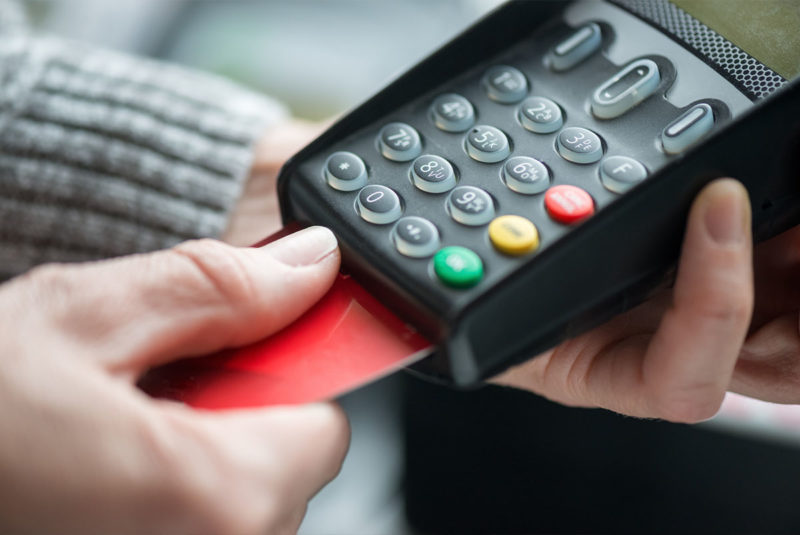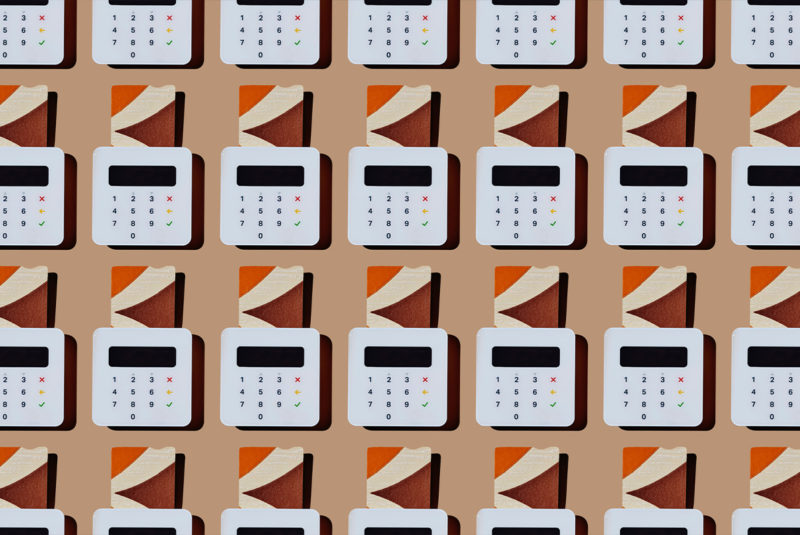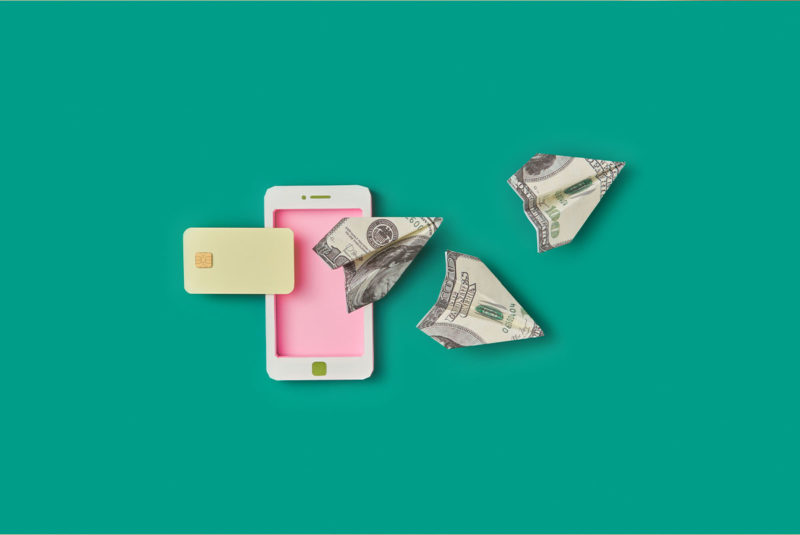Thinking about applying for your first credit card? Wondering how it all works – whether you qualify or even if it’s a good idea?
Then you’re in the right place. Here’s everything you need to know, including recommendations on the best first credit cards to choose from.
What’s the Absolute Best First Credit Card?
There’s no single credit card that fits everyone who’s new to credit, but there are enough solid starter credit cards that you shouldn’t have a problem finding one that’s right for you. As you look for your first card, consider factors like how you spend your money, whether you can afford an upfront deposit (or an annual fee, for that matter) and which extra features would most benefit your lifestyle.
We’ve divided our top picks into three separate categories: student cards, cards for applicants with no credit and secured cards.
Best Starter Credit Cards for Students
Student credit cards are designed for people with limited or no credit history. This makes them relatively easy to get and perfect for college students looking to learn about responsible card use.
While most student card offers don’t come with much in the way of cash back rewards or benefits, the Discover it® Student Cash Back offers 5% back in categories that rotate every three months, like groceries or gas stations (up to $1,500 in spending each quarter, with activation required). This is one of the better reward programs you’ll find as a student with limited credit.
Here are our top picks for the best first credit cards for students:
| Best for | Card |
| Earning Rewards | Discover it® Student Cash Back |
| Buying Gas and Going Out to Eat | Discover it® Student Chrome |
| Long 0% Intro Period | Bank of America Customized Cash Rewards® Credit Card for Students |
| International Students, No Credit History | Deserve® EDU Mastercard for Students |
Best Credit Cards for Easier Acceptance
Not a student? Don’t worry; there are cards for you, too. Here are the best first credit card picks for people without credit history:
| Best for | Card |
| No Annual Fee | Journey Student Rewards from Capital One (Yes, non-students are eligible for this card.) |
| Easy Acceptance | Petal® 2 “Cash Back, No Fees” Visa® Credit Card |
| Immigrants and Relocating Professionals | Jasper Cash Back Mastercard® |
Best Secured Credit Cards
Another option is a secured credit card.
Unlike “unsecured” credit cards, which extend you a line of credit based on your credit scores, secured credit cards require you to make a refundable security deposit first.
If you make a deposit of $500, for example, you’ll have a credit limit of $500. You can spend up to that amount before your card is maxed out.
Since you’re fronting your own money, secured cards are easier to qualify for than unsecured cards (but approval is still not guaranteed).
Your payments are reported to the credit bureaus, helping you build credit – and eventually helping you qualify for an unsecured card.
Here are our picks for best first credit cards (secured):
| Best For | Card |
| Earning Rewards, No Annual Fee | Discover it® Secured Credit Card |
| Low-Security Deposit | Capital One Platinum Secured Credit Card |
| Military Members and Families | NFCU nRewards® Secured Credit Card |
Why Should You Get Your First Credit Card?
If you grew up in a household that avoided credit cards like the plague – or perhaps used them too much, you may be wary of getting your first credit card.
But credit cards offer features you can’t find elsewhere – like extended warranties, 0% fraud liability, travel perks and cash back rewards. And, with responsible use, they’re a great way to build your credit history.
Why does your credit matter?
When people talk about your credit, they’re generally referring to your credit history and credit scores. (You may have heard of FICO scores. They’re just one type, but happen to be the most popular.)
Your credit affects your chances of getting approved for apartments or mortgages and determines your interest rate when you apply for other loans.
Credit score ranges run from bad credit to fair credit to good credit to excellent credit. If you’re on the lower end of that spectrum, don’t fret, there are ways to improve your scores. Perhaps one of the easiest is to responsibly manage credit cards or other loans.
When you have bad credit, you might have a tough time qualifying for a nice apartment or mortgage – and, as may be obvious, with excellent credit, the world’s your oyster.
How Can Your Credit Cards Help You Build Credit?
Without credit reports and scores, lenders will be wary of giving you money. After all, they have no idea whether you’ll be a reliable borrower.
To build credit, you need to show you can use credit responsibly, which can seem like a Catch-22. But credit cards are an easy way to get started.
Credit card companies report your monthly payments to the credit bureaus. Your credit reports and, thus your credit scores, are based on that info.
By making on-time payments each month, you’ll show lenders you’re worthy of their trust, which could eventually lead to qualifying for higher credit lines as well as cash back and travel rewards.
Then when it comes to other types of loans, like mortgages or auto loans, you’ll also qualify for better interest rates. That could save you a lot in the long run. On a $300,000 mortgage, for example, just one additional percentage point of interest could cost you more than $60,000 over the course of 30 years.
How Can You Get a Credit Card Without a Credit History?
If you’re reading this, you probably haven’t established any credit yet. Fortunately, you should still be able to find a credit card that gets the job done – as long as you know what to look for.
Here are four ways to find a solid first credit card:
- Check for pre-qualified offers
- Become an authorized user
- Apply at your bank or credit union
- Apply for a store card
Just be especially careful with store cards, as they’re sometimes associated with poor customer service and high-interest rates.
Check for pre-qualified offers
You might be surprised to learn that you may already qualify for some credit cards. Take a moment to see if you’re pre-approved for any credit card offers, which would allow an easy entrance into the credit card game.
Just because you’re pre-qualified for a card, however, doesn’t mean it’ll be a good fit for your lifestyle – so make sure to read reviews before applying.
Become an authorized user
Want to get a credit card without any credit check? Then consider asking a reliable family member to add you as an authorized user.
After becoming an authorized user, mutual trust is important. If the primary account holder makes a late payment, it could damage your credit. And if you, as an authorized user, incur any debt, the card issuer will ultimately hold the primary account holder responsible for paying it back.
As long as you trust your primary cardholder and they trust you, becoming an authorized user can be a smart way to get your first card and start building credit history – without requiring a hard inquiry on your credit reports.
Apply at your bank
You could also try applying for a credit card through your bank or credit union. If you have an established relationship with a financial institution, it may be more willing to take a chance on you.
Consider a store credit card
At store checkout counters, eager sales associates have likely pressured you to get a store credit card. We don’t normally recommend these types of cards for the following reasons:
- They tend to have lower credit limits and worse customer service than major bank cards.
- Some are limited to use at certain stores, instead of anywhere major credit cards are accepted.
So why are we even mentioning them? Because one perk of store cards is they usually have lower approval requirements than mainstream cash back and travel cards.
While you should consider other options first, a store card may make sense if you shop with a specific brand frequently enough to make its rewards program worthwhile.
Figure out where the store card fits in with your overall credit-building strategy. For example, it probably won’t be a good card to use for everyday purchases, but it could help you qualify for better cards in the future.
Just make sure you fully understand the terms – and read ample reviews – before applying. See our best retail store card picks here.
When you visit MoneyTips, we want you to know that you can trust what’s in front of you. We are an authoritative source of accurate and relevant financial guidance. When MoneyTips content contains a link to partner or sponsor affiliated content, we’ll clearly indicate where that happens. Any opinions, analyses, reviews or recommendations expressed in our content are of the author alone, and have not been reviewed, approved or otherwise endorsed by the advertiser.
We make every effort to provide up-to-date information; however, we do not guarantee the accuracy of the information presented. Consumers should verify terms and conditions with the institution providing the products. Some articles may contain sponsored content, content about affiliated entities or content about clients in the network. While reasonable efforts are made to maintain accurate information, the information is presented without warranty.
6 Things to Understand About Your First Credit Card
Although credit cards are valuable financial tools, they can be dangerous if you don’t understand how they work.
Before getting your first credit card, here are six things to know about being a first-time cardholder.
1. Credit card interest is very high
The average interest rate on a mortgage is less than 5%.
Compare that to the interest rate on a credit card (also known as the annual percentage rate, or APR), which can be 18 – 22% or higher.
That’s why we advise paying off your credit card bill in full each month. If you do that, you’ll completely avoid paying interest, while still enjoying the convenience and credit-building that plastic provides.
2. Minimum payments are dangerous
When you receive your first credit card bill, you’ll see an amount labeled “minimum payment.”
While it can be tempting to pay this – and nothing else – it’s a terrible idea. As noted above, the interest on credit cards is very high. When you make just the minimum payment, you start accruing interest on any remaining balance, and your total debt can quickly spiral out of control.
3. It’s not a debit card
Though they may look the same, credit cards are very different from debit cards.
Instead of withdrawing money from your checking account with each transaction, you’re taking out a loan from your credit card issuer. That’s why it’s important to carefully monitor your purchases and only spend what you can afford.
You also shouldn’t take out cash with a credit card, as doing so comes with exorbitant fees.
4. Intro APRs don’t last forever
If you see a card that advertises an “intro APR” of 0%, it means you won’t pay interest on purchases (and/or balance transfers) for a period of time (often 12 – 18 months).
While, technically, that’s an interest-free loan, be careful. If you don’t pay off your balance by the end of the promotional period, you’ll be on the hook for the remaining debt at extremely high-interest rates.
5. Mistakes can haunt you
If you get a credit card, be diligent about making your payments on time, every time. Late payments can stay on your credit reports for seven years and may trigger penalty APRs that are even higher than normal.
Even without a penalty APR, regular interest rates can cause your credit card debt to balloon quickly until it’s extraordinarily difficult to pay back.
6. Using your card is a good thing
All that said, don’t be afraid to use your credit card.
If you never use a card, your issuer won’t have any payment history to report to the credit bureaus. This means you won’t build credit as quickly as you could.
The solution? Charge what you can afford, and pay off the bill in full once you get the statement.
That being said, if you want the highest possible credit scores, we recommend you pay down your card’s account balance before your statement period ends, to show more available credit and improve your credit utilization. This will also help you avoid late fees from missed payments or interest charges from not paying off your balance in full each month.
3 Qualities Shared by the Best Starter Credit Cards
All the best starter credit cards share similar qualities.
In addition to being open to applicants with limited credit profiles, they also offer:
1. No annual fee
When it comes to your credit scores, the average length of your credit history matters. So you should probably plan to keep your first credit card open for a long time.
When you choose a starter card with no annual fee, you’ll be able to keep it open forever – at no cost. Even if you move on to other cards later, you can keep that first credit card open to maintain a lengthy credit history.
2. Rewards
Though it might be surprising, even people with limited credit can qualify for rewards credit cards.
The Bank of America® Customized Cash Rewards Credit Card for Students, for example, offers 3% cash back in your choice of one of six categories, 2% at grocery stores and 1% everywhere else. You can use the cash back as a statement credit, or redeem it for gift cards or other rewards.
The Discover it® Student Cash Back offers 5% cash back on rotating categories, up to $1,500 per quarter with activation required. This year, one of the categories is Amazon.com. Other student rewards cards from Discover even offer cash for good grades. Discover cardholders will also get a Cashback Match at the end of their first year, doubling all rewards earned
3. Extra features
Before getting your first credit card, you should read the fine print to learn about other features that might matter to you.
These could include extended warranties on purchases, no foreign transaction fees (if you plan to travel or study abroad) and free credit monitoring services.
Wrapping Up
When used responsibly, credit cards are a great way to establish a credit history and build up your scores.
You just need to find the credit card that works for your scores and income. If you’re new to the world of credit, that may mean choosing a student or secured card. If you’ve already established some credit, then you may already qualify for a decent rewards card.
Whatever card you end up choosing, make sure you fully understand the card details and terms, especially the interest rates and fees.
Pay your card on time, every time, and eventually, you’ll be able to qualify for some of the best credit cards available.



